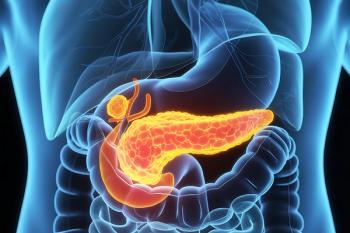
Phase 3 Trial Shows Significant Weight Loss with Mounjaro
Patients taking Mounjaro after a lifestyle intervention saw a weight reduction of almost 20%.
Overweight or obese adults taking tirzepatide (Mounjaro, Eli Lilly) for weight loss experienced a significant reduction in body weight compared with those taking a placebo, according to a new phase 3 trial, SURMOUNT-3, published in
Mounjaro is a glucose-dependent insulinotropic polypeptide and glucagon-like peptide-1 (GLP-1) receptor agonist. The drug received
Intensive lifestyle interventions for weight management include diet, exercise, and counseling. While they can lead to modest weight loss and improved health, few people achieve significant weight loss and often regain weight due to metabolic adaptations, such as increased hunger.
Researchers, including principal investigator
The study included adults with a body mass index (BMI) of 30 or higher or 27 or higher with at least one weight-related condition (e.g., high blood pressure). The trial enrolled 806 patients who first underwent a 12-week period of intensive lifestyle intervention to achieve a 5% weight reduction. After this lead-in period, they were randomized to receive either tirzepatide or placebo once weekly for 72 weeks.
The primary outcome measured was the average weight change at week 72. The results showed a significant reduction of 18.4% in the tirzepatide group compared with 2.5% in the placebo group. Additionally, the percentage of participants achieving an additional 5% weight reduction was 87.5% with tirzepatide and 16.5% with placebo.
The study also evaluated secondary outcomes, including cardiometabolic risk factors and physical function. Participants in the tirzepatide group showed improvements in waist circumference, blood pressure, A1c, glucose, insulin, and cholesterol levels compared to the placebo group.
Regarding safety, gastrointestinal events, such as nausea, vomiting, and diarrhea, were the most commonly reported adverse events with tirzepatide. However, they were mostly mild to moderate in severity. The incidence of serious adverse events and deaths was similar between the tirzepatide and placebo groups.
Exploratory outcomes showed that tirzepatide led to substantial additional weight reduction, with nearly a third of participants achieving a 25% or more body weight reduction compared with 1.2% in the placebo group.
The study supports tirzepatide as a treatment option for individuals who have already achieved a 5% weight reduction via lifestyle changes alone.
“Tirzepatide (15 mg) reliably induces a mean reduction in body weight of 20%; this is
equal to 50 lb in a patient who weighs 250 lb,” stated Wadden, lead author of the paper, in an email interview with Formulary Watch. “Weight losses of this size will provide much better control of sleep apnea, osteoarthritis, nonalcoholic steatohepatitis (NASH), type 2 diabetes, and other obesity-related complications that are only marginally improved with a traditional 5% to 10% weight loss,” he said.
“Patients treated by intensive lifestyle modification (diet, exercise, and behavior therapy) have long reported wanting to lose 20% to 25% of their starting weight to reach their personal weight loss goals,” Wadden noted. “This is usually a weight they were as a younger adult, a weight at which they felt healthier and had a better quality of life.”
Wadden suggested that medications like tirzepatide could provide an alternative to bariatric surgery, mentioning that some people may not seek surgery because of fears of operative or post-operative complications.
“Studies will be needed to compare the short- and long-term risks, benefits, and costs of bariatric surgery versus medications such as semaglutide and tirzepatide. Bariatric surgery is an expensive procedure - about $25,000 or more and can be associated with significant postoperative costs,” he said. “Semaglutide can cost as much as $1,300 per month, and patients likely will need to take the medication indefinitely, as with treatments for diabetes, hypertension, or high cholesterol.”
Regarding concerns around the steep cost of new anti-obesity medications and how to make them accessible to those who need them, particularly those who are socioeconomically disadvantaged, Wadden acknowledged there are no easy answers.
He stated: “I encourage the Centers for Medicare and Medicaid Services to cover medications for chronic weight management, which they still do not. That would be a critical step in getting other insurers to recognize the efficacy and benefits of the new AOMs.”
Eli Lilly funded the study. Wadden serves on scientific advisory boards for WW (Weight Watchers) and Novo Nordisk.
Newsletter
Get the latest industry news, event updates, and more from Managed healthcare Executive.























